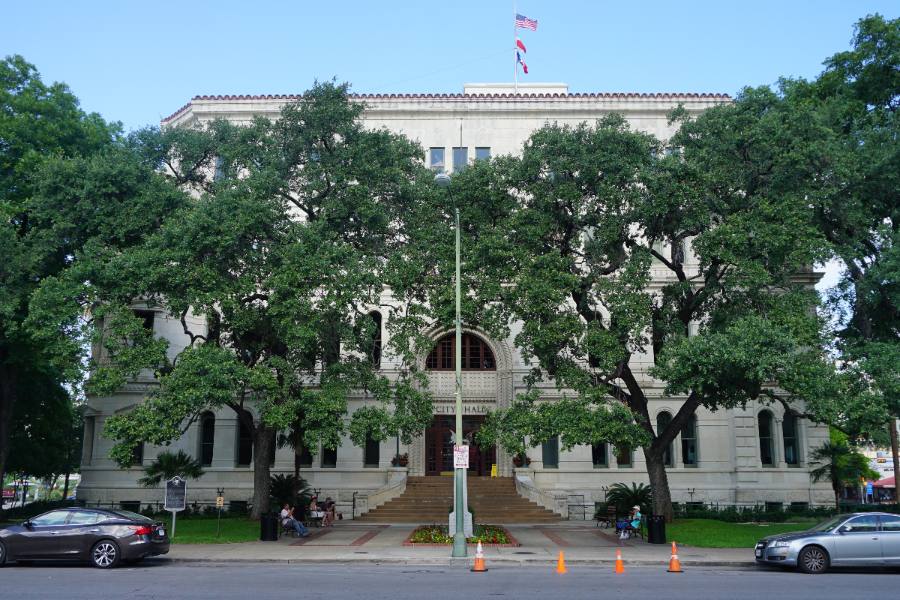
SAN ANTONIO, TX — USAA is warning its members about scammers posing as bank representatives and phoning local households. According to the firm, the scammers are attempting to obtain passwords and other personal information from subscribers. “These criminals are ruthless,” said Stacey Nash, USAA’s senior vice president of fraud.
Have you received a call claiming to be from your financial institution in an attempt to obtain your personal information? You’re not alone! Scammers are increasingly impersonating bank caller ID numbers in order to gain consumers’ trust. SAN ANTONIO, TX — USAA is warning its members about scammers posing as bank representatives and phoning local households. According to the firm, the scammers are attempting to obtain passwords and other personal information from subscribers.
Increasingly Impersonating Bank Caller ID Numbers
Scammers are increasingly impersonating bank caller ID numbers in order to gain consumers’ trust. SAN ANTONIO, TX — USAA is warning its members about scammers posing as bank representatives and phoning local households. According to the firm, the scammers are attempting to obtain passwords and other personal information from subscribers.
“These criminals are ruthless,” said Stacey Nash, USAA’s senior vice president of fraud. “They are despicable, and they are attacking consumers at an unprecedented rate.” According to the Federal Trade Commission, impostor scams cost more than $2.3 billion in losses last year, up from $1.2 billion in 2020. In 2021, consumers reported losing more than $5.8 billion to fraud, a more than 70% rise over the previous year.
According to Nash, there has been a significant surge in scammers casting a wide net in order to acquire access to consumers’ online banking information. She claims that these scammers are not just impersonating USAA but also other banks. When these fraudsters email, text, or call, she advises not to be tricked by the bank name that may show on your caller ID.

The Number Says it All…
“The number on your phone on the caller ID looks like it is coming from your bank. So, you trust it,” Nash explained. She claims they’re employing spoofing software to pretend to be phoning from USAA’s 1-800 number. Nash cautions that scammers are also sending SMS or emails inquiring about hefty out-of-state expenses. When you respond no, the scammers inform you that your account has been hijacked. She stated that this is when they will contact you and request credentials in order to make modifications. If you provide the scammers with your online banking login information, they will be able to access your accounts.
Lost money to online fraud? We will recover your funds !
So, How Do You Know The Difference Between A Scammer and a Legitimate Bank?
“We are not going to ask you for security information and passwords and pins, all of those things that are giving criminals access to your online banking.” According to Nash, the bank already has all of your login and security information. She stated that when USAA contacts you, they will also provide you with the most recent four transactions on your account and will then promptly attempt to assist you with your fraud. Scammers call alleging to be from your financial institutions attempting to obtain your personal information in order to gain access to your online banking accounts. Many scammers can forge caller ID information or text message numbers to look to be from your financial institution; even if the number is saved in your contacts, an incoming call isn’t always from the bank or credit union that it says on the phone.
Scammers may be aware of the bank or credit union you use. They’ll forge the phone number they’re calling from in order to appear to be from your financial institution. Alternatively, they’ll send what appears to be a text message from your bank or credit union to confirm whether you made a recent transaction. They’ll state they’re informing you of a recent purchase and ask if you made it. Because this is something that many financial institutions do, scammers know that most people will take it seriously.
if you’ve been scammed through a phishing scam and need help getting your money back, then contact us and we’ll help you!
Even if your bank’s or credit union’s name appears on your Caller ID or you have their phone number set on your phone, don’t assume they’re calling you. If you pick up the phone, tell them you’re unable to speak right now; you could attempt acquiring their name and phone number so you can contact them again. Hang up and call your financial institution to see if there is an issue with your account.
Scammers may request your member number or digital banking User ID. Once they have your User ID, they can click on the “Reset password” or “Forgot password” link, which will send you a text message, email, or phone call containing a verification code. They may request that you read the code to authenticate your identity. The code will then be used to change your password and gain access to your online banking account. Scammers use the fact that you’re already on the phone with them to make it appear as if the code is part of the process of verifying your identification. They are, in fact, initiating a process that will allow them to reset your password and get access to your online banking account. NEVER re-enter the verification code or share it with anybody.

They’ll update your password and gain access to your account once they have the verification code. They may go over a few of your recent transactions to make it appear as if you’re speaking with your bank or credit union. They may also request further information, such as your card PINs. Never give out your card PIN to anyone. A financial institution will NEVER ask for your PIN and will not require it to restrict your card. If you receive one of these calls or texts, do not provide any information to them. Call your financial institution to see if there is a problem with your account. The terrifying reality is that sophisticated scams like this are becoming more regular. Because you provided your credentials to scammers, you may be held accountable, and your bank institution may be unable to recover your funds. If you are duped into providing a verification code or your PINs, contact your bank or credit union immediately so that your account may be locked and an investigation can be launched.
Get more updates on a scam related news by visiting our website!
Sources
- https://www.ksat.com/news/local/2022/04/05/these-criminals-are-ruthless-usaa-warns-of-new-scam-attempting-to-get-online-bank-login-information/
- https://www.c1stcreditunion.com/news/fraud/how-phone-scammers-try-to-access-your-digital-banking/
We is committed to upholding the journalistic standards online, including accuracy. We report news related to scams and we aim to be accurate in our reporting. Our policy is to review each issue on a case by case basis. Upon becoming aware of any potential error or need for clarification, we try act on it as quickly as possible. Please notify us first so that we can resolve the issue.



